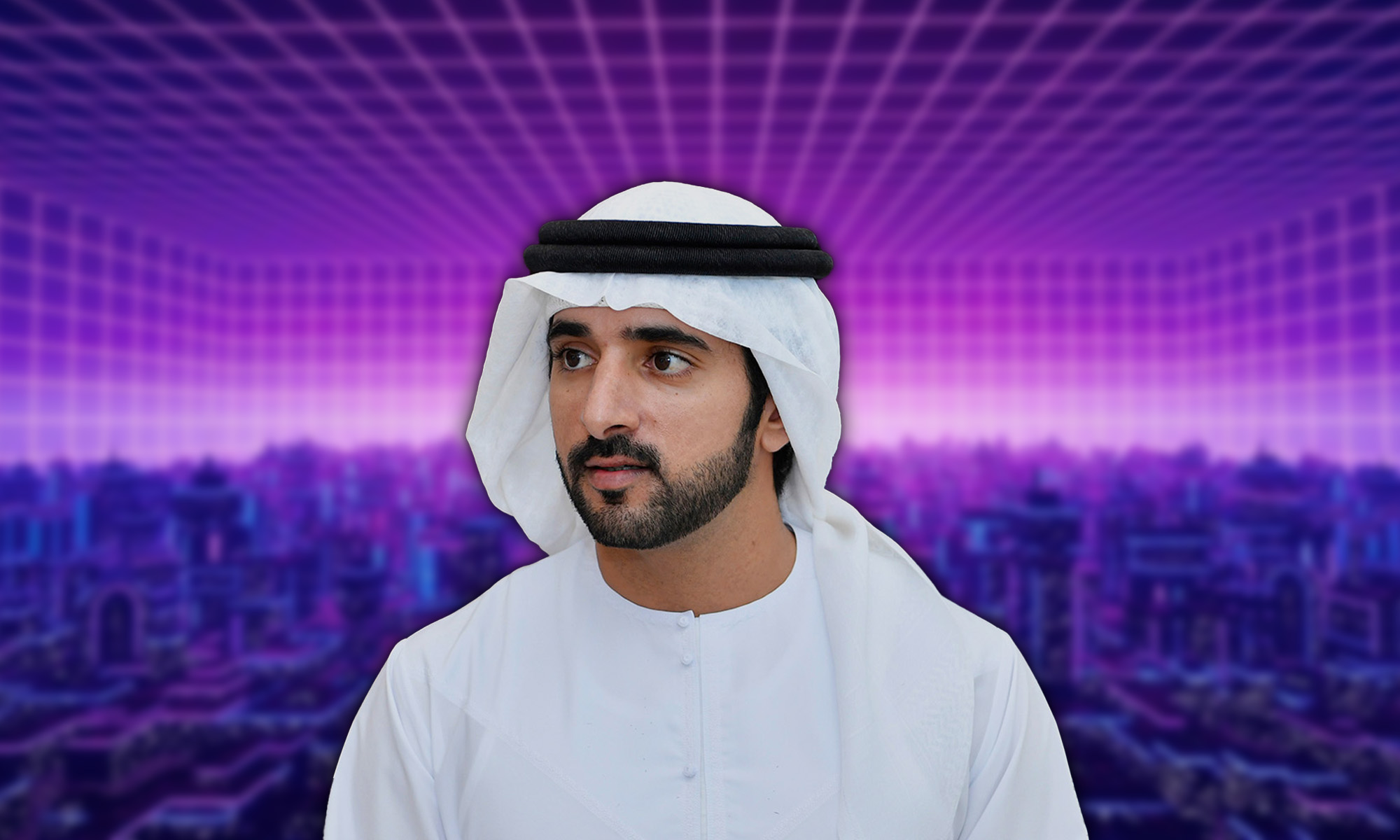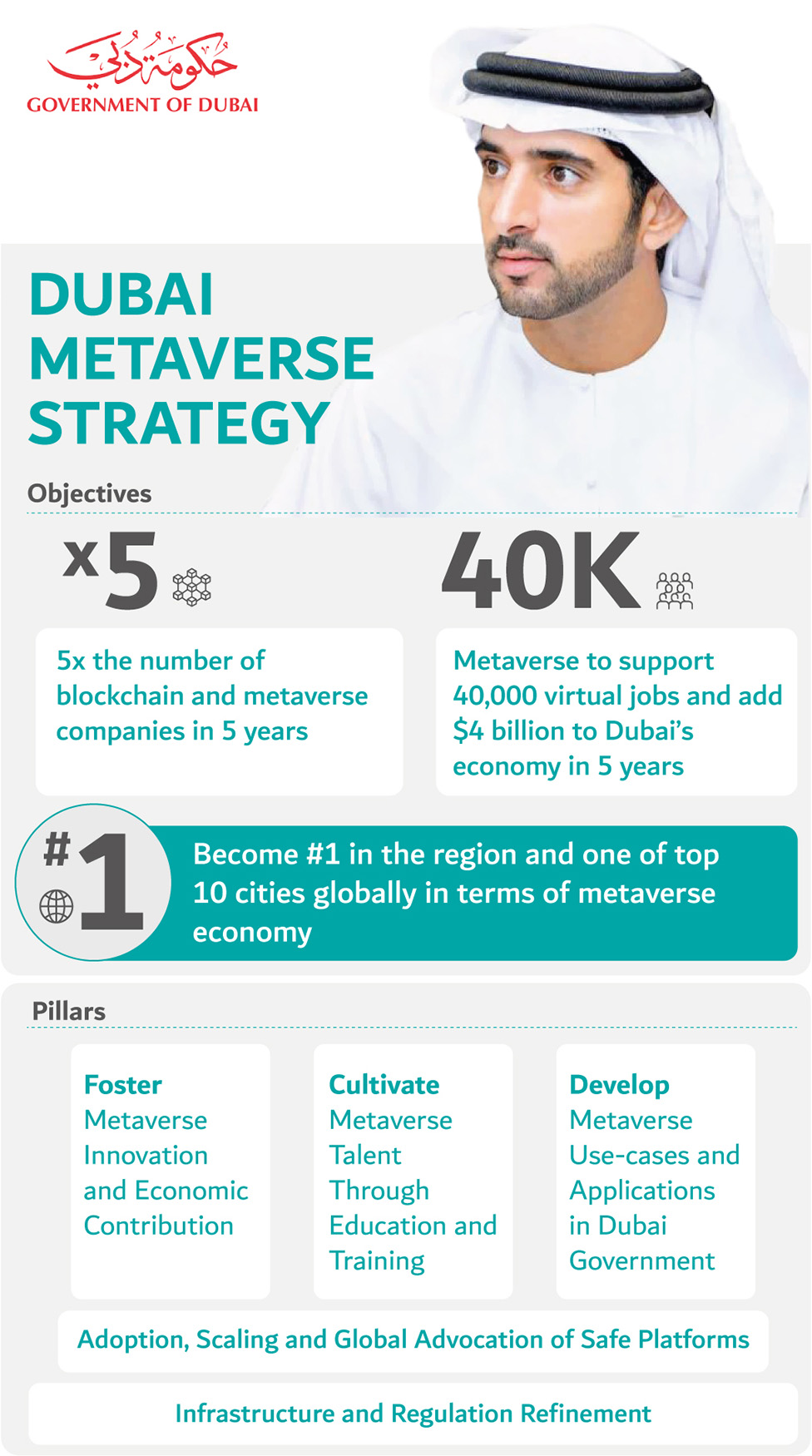News
Dubai Introduces Its Metaverse Strategy
The aim of the initiative is to make Dubai the leader in the region and one of the top 10 cities globally in terms of metaverse economy.

Dubai Crown Prince Sheikh Hamdan bin Mohammed bin Rashid Al Maktoum seems to share Meta’s vision for the next generation of the internet because he has recently launched the Dubai Metaverse Strategy.
The aim of the initiative is to make Dubai the leader in the region and one of the top 10 cities globally in terms of metaverse economy by supporting 40,000 virtual jobs and 5x the number of blockchain and metaverse companies. By achieving these ambitious goals, Dubai could add $4 billion to its economy within the next 5 years.

“His Highness added that adopting new technologies will be a stepping stone in Dubai’s vision to use future technologies to create new work models in vital sectors and increase the metaverse’s impact on regional and global economies,” states an announcement published by the UAE official news agency WAM.
The Dubai Metaverse Strategy consists of three pillars. The first pillar is intended to foster metaverse innovation and economic contribution. The purpose of the second pillar is to cultivate metaverse talent through education and training. Finally, the third pillar is all about developing metaverse use-cases and applications at the government level.
The three pillars are supported by the adoption, scaling, and global advocation of safe platforms, in addition to infrastructure and regulation refinement.
Also Read: UAE To Punish Crypto Scammers With Fines & Jail Time
While certainly one of the most bullish proponents of the metaverse, Dubai isn’t the first city to introduce a cohesive strategy. Just last month, Chinese city Shanghai released a policy paper that outlines its strategy to cultivate a metaverse industry worth more than 350 billion yuan ($52 billion) by the end of 2025.
Globally, the metaverse market is projected to be worth around $1,607.12 billion by the end of the decade, according to Precedence Research. Do you think Dubai will see a return on this massive investment?
News
Influencer Growth Fuels Saudi Creator Economy Surge
The Kingdom’s creator economy grew over 32% in Q1 2025, fueled by TikTok, UGC, and cost-per-action (CPA) influencer models.

Saudi Arabia’s creator economy saw a significant 32.37% growth in the first quarter of 2025, driven by an uptick in influencer marketing, content-driven e-commerce, and the increasing influence of user-generated content (UGC). These insights come from a recent study by Admitad and the Stllr Network.
Much of this momentum is coming from video-based platforms, where brands are leaning on creators who feel more relatable than polished ad campaigns. The trend shows a clear preference for authenticity, as audiences gravitate toward content that feels real and personal.
Mohannad Alzahrani, Co-founder and VP KSA of Stllr Network, highlighted the shift: “The rise of user-generated content (UGC) is changing the way brands engage with consumers. Audiences trust real creators more than traditional advertising, making UGC a key driver of authenticity and sales”.
TikTok remains the dominant platform in this space, reportedly reaching 88% of the Saudi population. It also showed the sharpest rise in influencer-led transactions. Other platforms followed with solid, if less dramatic, growth: X was up 17%, Instagram increased by 12%, and Telegram by 10%.
In terms of content niches, beauty led the pack with a 56% growth rate, followed by lifestyle at 45.8% and fashion at 18.2%. Tech content also showed healthy traction at 10.6%, while entertainment, food, fitness, parenting, and gaming posted smaller — but still positive — gains.
Also Read: Top E-Commerce Websites In The Middle East In 2025
The report analyzed more than 300,000 influencer-driven purchases. These efforts translated into a 15% year-on-year jump in Gross Merchandise Value (GMV) and a 5% increase in the number of orders in 2024. Influencers themselves are seeing the benefit, with average order values hitting $54 and creator earnings rising by 14%.
A noticeable trend is the move away from fixed-rate deals. More influencers in Saudi Arabia are embracing hybrid compensation models — especially cost-per-action (CPA) setups that tie their earnings directly to performance.
As Anna Gidirim, CEO of Admitad, explains, “The CPA model brings much-needed transparency to influencer marketing. Brands only pay for actual results, and influencers benefit by securing long-term partnerships while offering their audiences exclusive promo codes and special discounts”.
However, the ecosystem still shows a gender imbalance. The data indicates that 63% of creators in Saudi Arabia are men, while women account for just 37%.






















